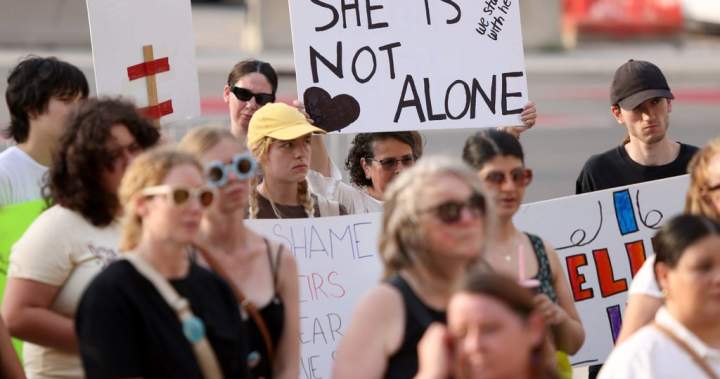The courtroom fell silent as Justice Hugh O’Connell delivered his verdict last Thursday, acquitting four former Ontario Hockey League players of sexual assault charges stemming from a 2018 incident. The decision has reverberated through London, Ontario, leaving the community divided and raising questions about how the Canadian justice system handles sexual assault cases involving high-profile defendants.
“This case demonstrates the inherent challenges in prosecuting sexual assault,” explained Pamela Cross, legal director at the Ontario Women’s Justice Network. “The burden of proof in criminal cases remains ‘beyond reasonable doubt,’ which creates a particularly steep hill to climb in cases where consent is the central issue.”
Court documents reveal the case involved allegations from a woman who met the players at a downtown bar in June 2018 following a Hockey Canada golf event. The complainant testified she was sexually assaulted in a hotel room, while defense attorneys maintained the encounter was consensual.
The four men – Dillon Dubé, Cal Foote, Michael McLeod, and Carter Hart – each faced one count of sexual assault. A fifth player, Alex Formenton, still awaits his separate trial scheduled for next year.
Justice O’Connell’s 45-page ruling cited “significant inconsistencies” in testimony and insufficient evidence to establish guilt beyond reasonable doubt. The judgment notably emphasized that an acquittal doesn’t necessarily mean the event didn’t occur as described by the complainant – only that the Crown failed to meet its evidentiary burden.
The case initially gained national attention when TSN reported in 2022 that Hockey Canada had quietly settled a lawsuit related to the incident. Public pressure mounted when it was revealed that the organization had used a special fund, partially built from minor hockey registration fees, to settle sexual misconduct claims.
“This case exists in a broader context where Canadians have legitimate questions about how powerful institutions respond to allegations of sexual misconduct,” said Dr. Melanie Randall, law professor at Western University who specializes in sexual violence and the justice system. “The Hockey Canada revelations created a crisis of confidence that extends beyond this individual case.”
In London, the verdict has sparked protests. I spoke with Vanessa Wilson, coordinator of the London Sexual Assault Centre, who described a surge in calls to their crisis line following the ruling.
“Many survivors are watching these high-profile cases closely,” Wilson noted. “When they see the challenges in securing convictions, even with substantial institutional attention, it can discourage reporting.”
Defence attorney Louis Strezos praised the verdict as evidence of the system working as designed. “The presumption of innocence remains a cornerstone of our justice system,” Strezos said. “These men were subjected to a thorough investigation and trial, and the evidence simply didn’t support conviction.”
The verdict comes at a time of evolving legal standards around sexual assault cases in Canada. The Supreme Court’s 2019 decision in R. v. Goldfinch narrowed when previous sexual history can be introduced, while 2021’s Criminal Code amendments strengthened protections for complainants in sexual assault proceedings.
I reviewed the Canadian Centre for Justice Statistics’ most recent data, which shows that sexual assault cases result in convictions at significantly lower rates than other violent crimes – 42% compared to 73% for physical assault cases that proceed to trial.
Hockey Canada has implemented new safeguards since the scandal broke, including mandatory sexual violence training and an independent mechanism for reporting misconduct. The organization declined to comment specifically on the verdict when contacted.
For London resident Megan Thompson, who organized a community dialogue following the verdict, the case has broader societal implications. “Whether or not these specific men were found guilty, we need to have honest conversations about consent, power, and accountability in our community,” she told me.
Legal experts caution against drawing sweeping conclusions from individual cases. “The criminal justice system is designed to determine individual accountability in specific circumstances,” explained criminal law professor Andrew Martin from Queen’s University. “It wasn’t built to address systemic issues around sexual violence, which requires broader social solutions.”
As the community processes the verdict, advocates emphasize the importance of support for sexual assault survivors. The London Sexual Assault Centre continues offering confidential services, noting that healing paths exist regardless of legal outcomes.
The acquittal marks a legal conclusion but leaves lingering questions about institutional accountability and community healing in a city trying to move forward while acknowledging painful divisions.






